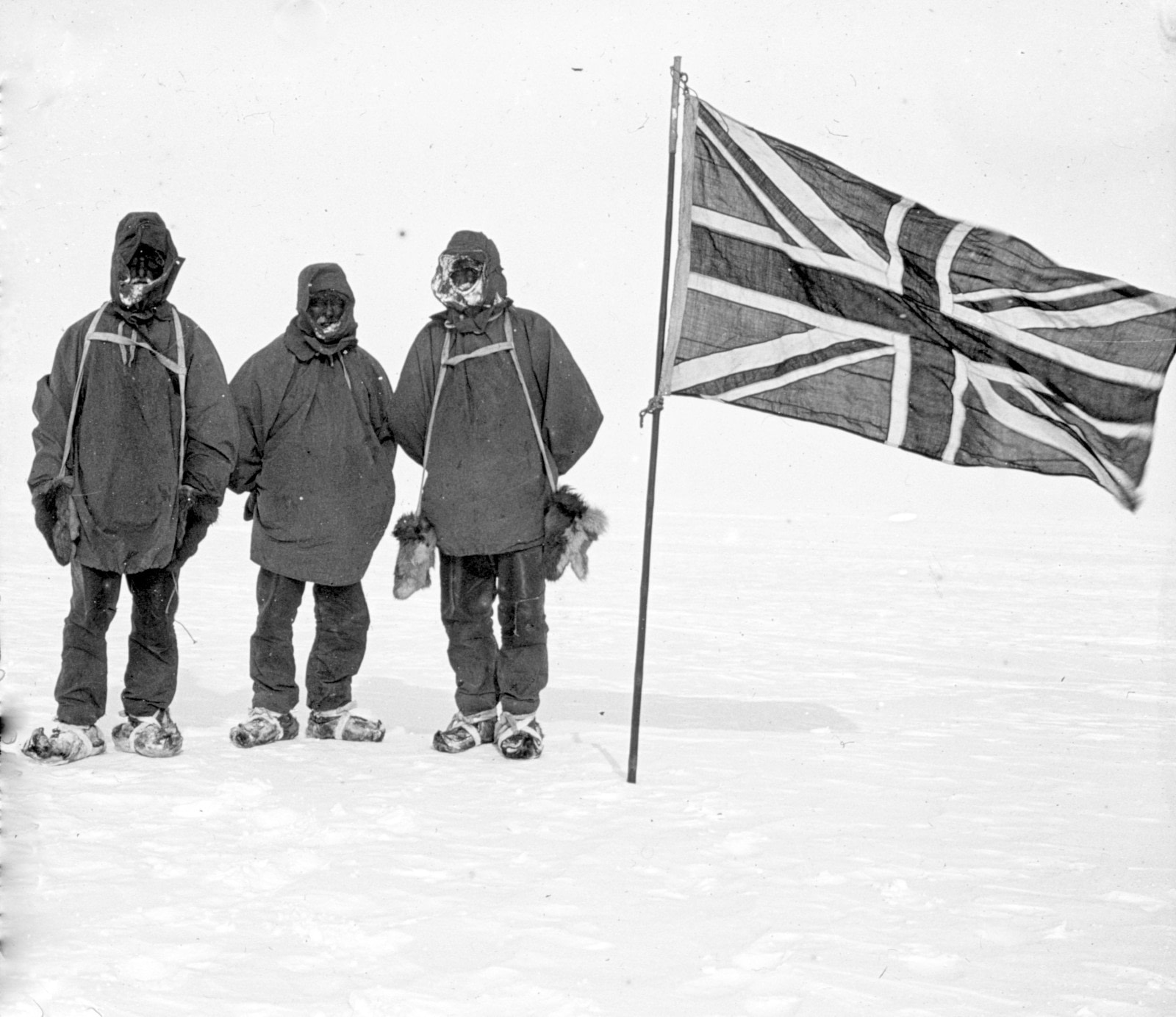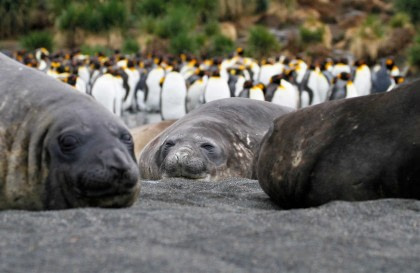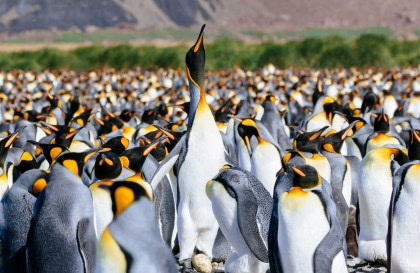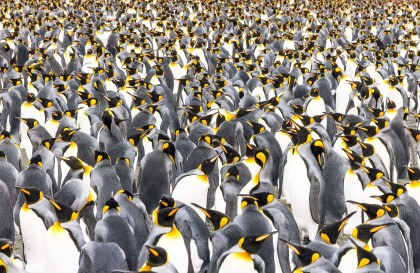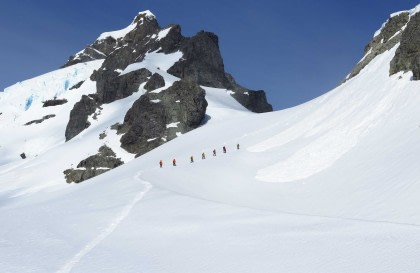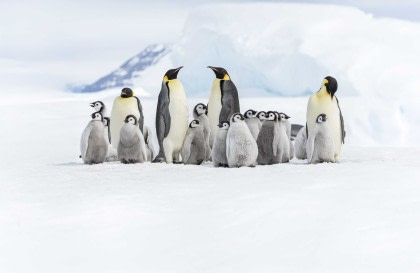"Once you have been to the white unknown, you can never escape the call of the little voices." Many visitors to Antarctica find Frank Wild's words perfectly capture the allure of the polar world. These little voices, the cracks of the ice, the cannon-fire of glacier fracturing, the call of gulls on the frigid air, the wind itself grasping at rock and snow, forever entrench themselves in the mind, evoking emotions and stirring memories from the edges of the Earth.
There is perhaps no one better placed to offer insight into the allure of Antarctica than Frank Wild, who, despite being one of the most highly decorated polar explorers in history, and a key figure in several Antarctic expeditions, described by Shackleton as his 'tower of strength' and his right-hand man, is often overlooked in the annals of polar greats.
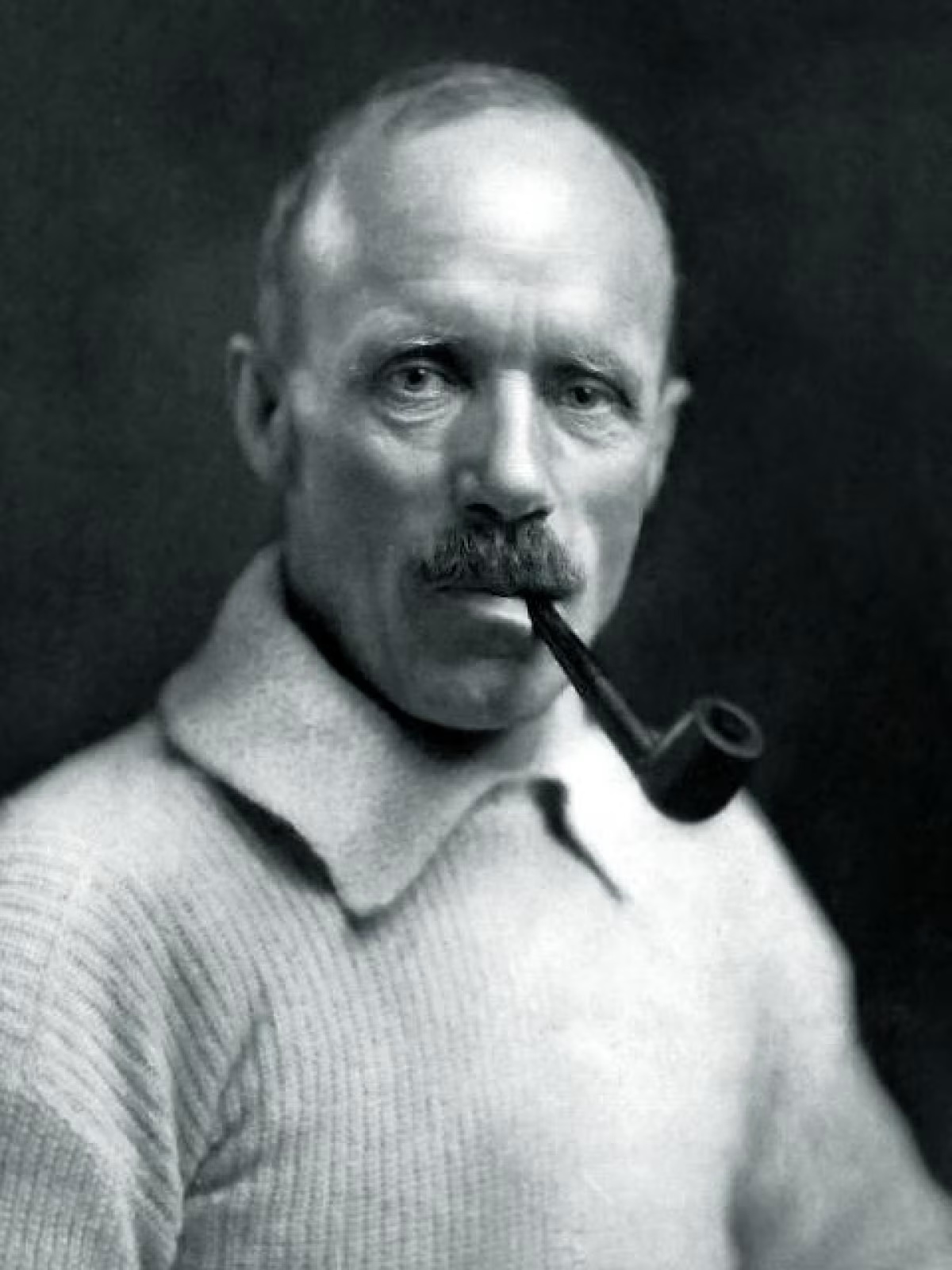
Photo: Commander Frank Wild | by Reg. Haines
A polar legend with humble beginnings
Born in Yorkshire in 1873, the eldest of 11 children to a seamstress mother and schoolteacher father, the young Wild was told at a young age that he was descended from another Yorkshire-born explorer - the famed Captain James Cook. Whether true or not, this link instilled a will to venture beyond the horizon in Wild, who, at the age of 16, left home for a life at sea.
Having visited many parts of the world in the Merchant and Royal Navy, Wild's first taste of the wild polar wastes would come in 1901, when he applied to, and was successful in joining, Robert Falcon Scott's Discovery Expedition as a petty officer. The voyage was a trailblazing Antarctic expedition that launched the careers of several veterans, including Wild, Ernest Shackleton, Edward Wilson, Tom Crean, Edgar Evans, Ernest Joyce, and William Lashly.
The Discovery Expedition was the first official British exploration of the Antarctic since Sir James Clark Ross's voyage 60 years earlier. The expedition achieved several significant milestones, including reaching a new furthest south latitude (82°17′S), mapping parts of the Ross Ice Shelf and Victoria Land, and collecting valuable scientific data. It also marked the beginning of a storied friendship and working relationship between Wild and Shackleton, who was already formulating his plans for a return to the Antarctic in a quest for glory.
The lure of Antarctica & the makings of a legend
Wild found life back on land a difficult readjustment, and when the opportunity to return to Antarctica appeared, he leapt at it. By 1907, Shackleton was organizing his first expedition to Antarctica, the Nimrod Expedition, and Wild was brought on board along with fellow Discovery veteran Ernest Joyce.
During the Nimrod Expedition, Shackleton chose Wild as a member of the four-man team who would attempt to reach the South Pole by foot after the winter quarters had been established at Cape Royds. In October 1908, Wild, along with Jameson Boyd Adams, Eric Marshall, and Shackleton, set out for the Pole, dragging sledges behind a team of ponies. Slow progress hindered them, and over time, the ponies, which suffered on the uneven terrain of the Ross Ice Shelf and the Beardmore Glacier, had to be shot.
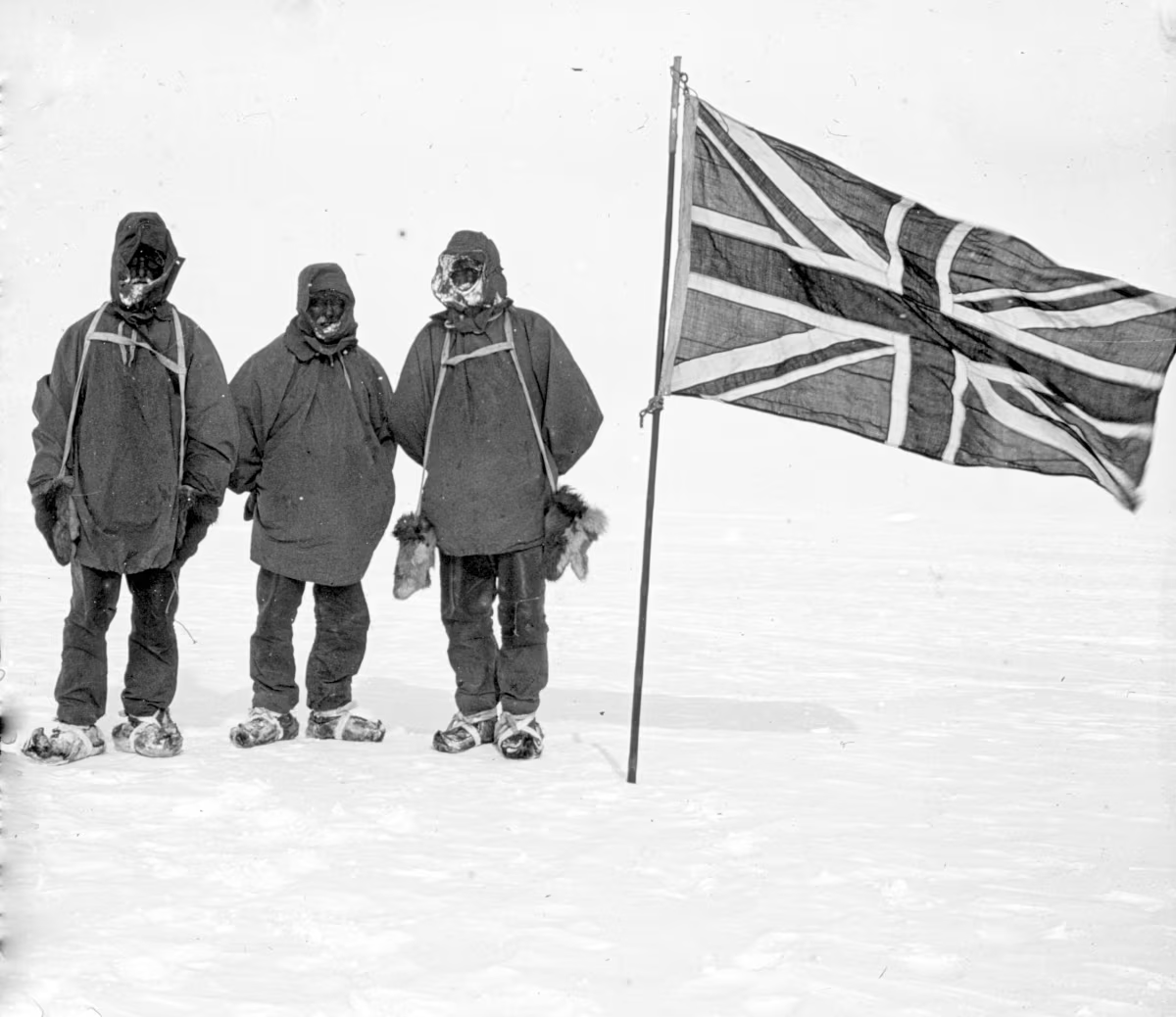
Photo: Nimrod Expedition (1907-09) to the Antarctic, led by Ernest Shackleton
By 9 January 1909, after man-hauling sledges since early December, the party realized they could not make the pole. Planting a Union Jack at 88° 23' S, 97.5 geographical miles from the South Pole, the party turned away from their goal. By 28 February, Wild, sick with dysentery, reached Hut Point with Shackleton, setting fire to it to draw the attention of the men aboard Nimrod. Marshall and Adams, left behind on the Ice Shelf due to sickness, were rescued three days later. While ultimately a failure, the farthest south record of the Nimrod Expedition stood until Roald Amundsen reached the South Pole on 15 December 1911.
Upon his return, Wild was awarded a second clasp to his Polar Medal, granted from his service on the Discovery Expedition.
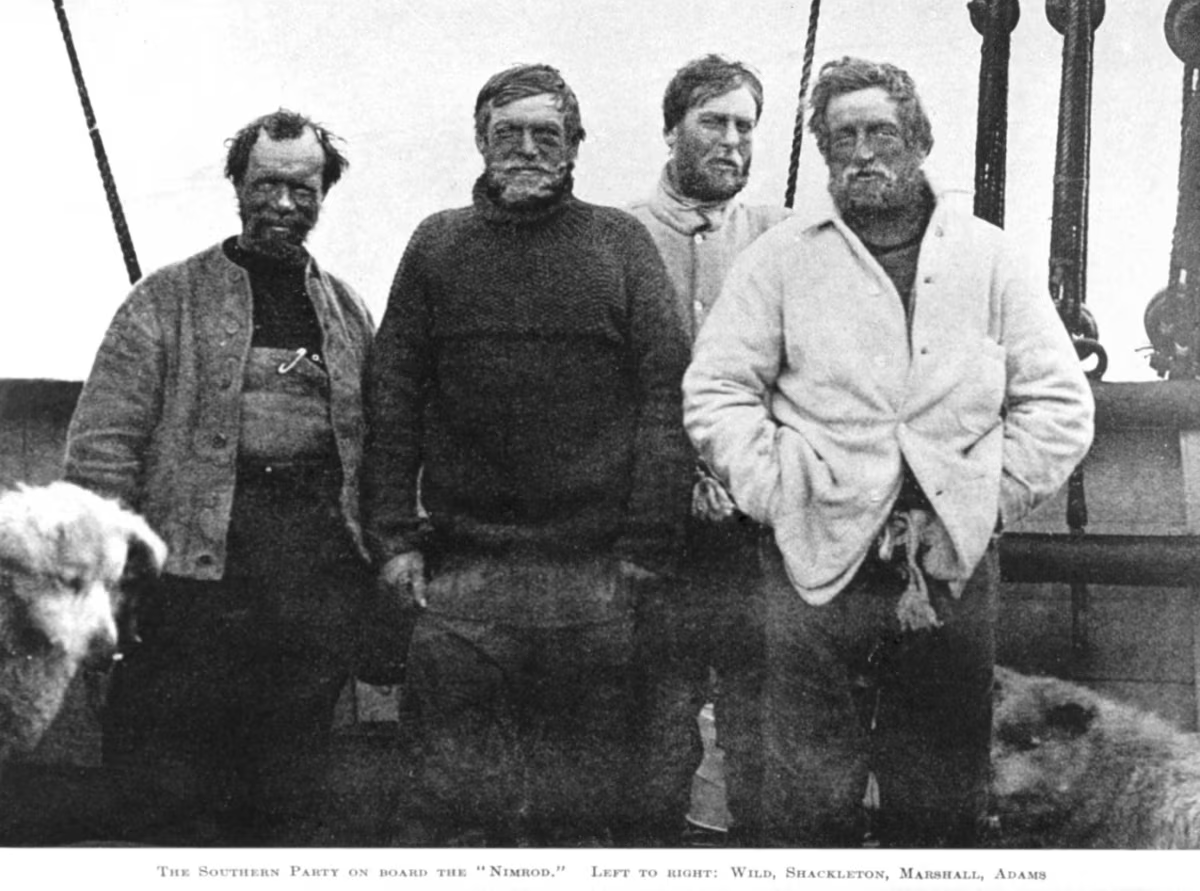
Photo: The Southern Party on board the ship Nimrod during the British Antarctic Expedition 1907-1909, after their return on 4th March 1909. From left: Frank Wild, Ernest Shackleton, Eric Marshall, Jameson Adams.
A growing influence - the Aurora Expedition
Barely two years later, Wild was once again returning to Antarctica aboard the Aurora, part of the Australasian Antarctic Expedition 1911-1914. The expedition was led by Sir Douglas Mawson, who had been part of Shackleton's Nimrod expedition several years earlier. Before joining Mawson, Wild had been invited by Robert Falcon Scott to join his ill-fated Terra Nova Expedition, but declined.
During the Aurora Expedition, Wild was put in charge of the Western Base, one of three bases set up with various aims. After being deposited on a large ice shelf, Wild declared it the Shackleton ice Shelf, and work began to establish themselves against the elements.
For the next year, the men of the Western Base struggled against fierce winds and logistical oversights, mapping over 560 kilometres of unexplored land and taking readings and observations. Transmitting equipment had been erroneously left behind, making contact with the other bases impossible. Wild led a sledging party, exploring land east of the base as far as 237 kilometers, before encountering impassable walls of ice. The land Wild and his men explored would come to be known as Queen Mary Land. Aurora eventually picked up the men of the Western Base in February of 1913. For his service, Wild was presented with a third clasp to his Polar Medal.
Wild's triumph- trapped at the end of the world
By 1913, Scott was dead, having perished in his attempt at the Pole in 1912. Amundsen had achieved glory by reaching the Pole mere weeks earlier, and Shackleton had become fixated on what he regarded as the last remaining slice of glory to be found in Antarctica - a crossing of the entire continent by foot.
Wild was brought onto the Trans-Imperial Antarctic Expedition by Shackleton, acting as second-in-command as the Endurance steamed south. Wild would play a key role in the survival of the men of the Endurance after she was crushed by ice and sank beneath the floes of the Weddell Sea in 1915. After the party survived on the ice for months, they made a break for the remote Elephant Island, using three ships' lifeboats to cross the treacherous southern seas and loose pack ice, making landfall five days later.
Elephant Island was remote, inhospitable, and far from any whaling outposts or link to civilization. Shackleton knew that, if his men were to survive, a desperate attempt at reaching South Georgia would have to be made. In April 1916, Shackleton, along with Tom Crean, Frank Worsley, John Vincent, Timothy McCarthy, and Harry McNish, set out to cover 800 miles of open ocean aboard the open-top lifeboat James Caird. It fell to Frank Wild to organize and lead the men left behind on Elephant Island, staving off boredom, hopelessness, and depression, and ensuring that all men under his command survived their ordeal. The men on Elephant Island encamped in a hut made using boulders, and the two remaining overturned lifeboats, huddled around a stove belching thick smoke and the smell of burning seal fat, unwashed and dishevelled, but nonetheless in high spirits, confident in the ability of the men in the James Caird.
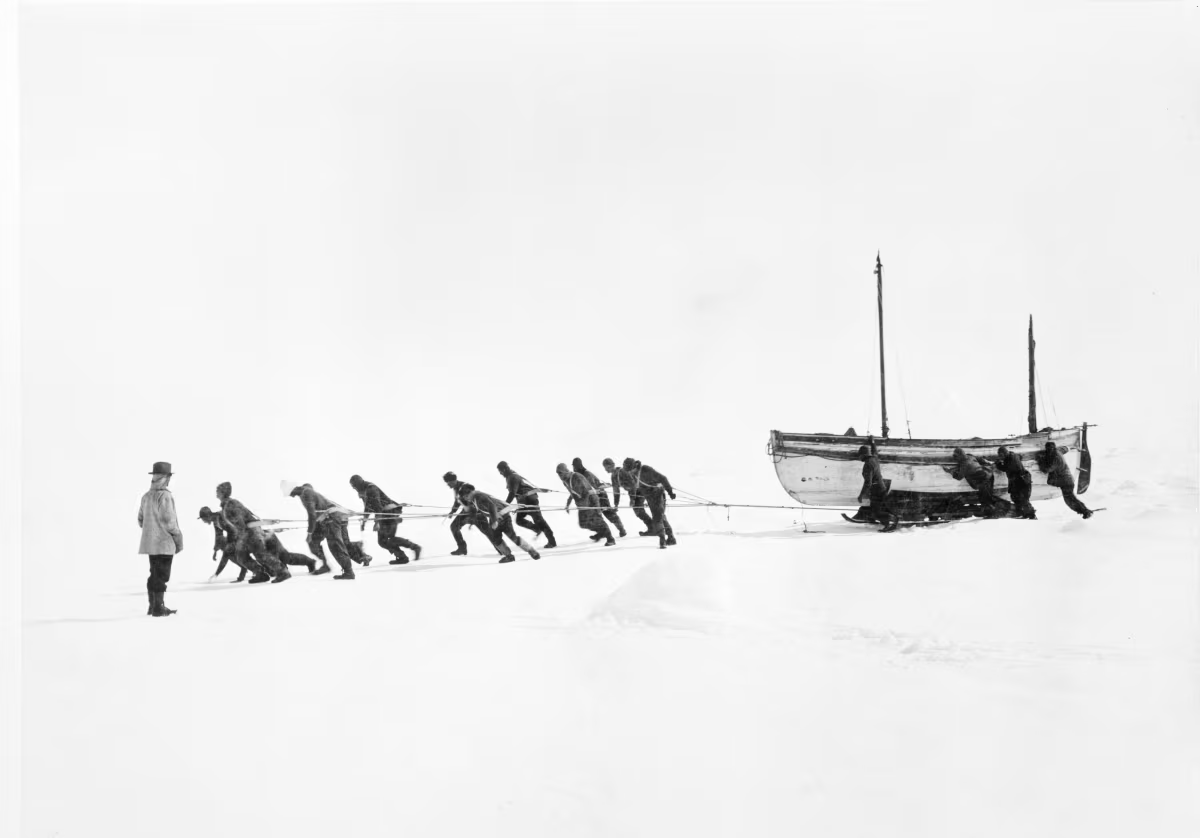
Photo: James Caird
The spit of land on which they camped on Elephant Island, which was christened Point Wild, was battered relentlessly by fierce gales and blizzards, and when temperatures increased, the floor of their tent became a slushy quagmire. Eventually, the seals, seabirds, and penguins vanished as winter came, diminishing their already paltry food stores, forcing them to survive on limpets, seaweed, and partially frozen carcasses from hunts earlier in the year.
During this time, Wild is known to have kept the spirits of his men high, proclaiming each morning, 'Get your things ready, boys, the Boss may come today!' All 22 men under his command on Elephant Island were greasy and filthly from skinning seals and penguins, with faces blackened by soot and smoke from the small stove kept burning in perpetuity by the cook, Charles Green. They were exhausted, at constant risk of frostbite, and barely clinging to survival.
On 30 August 1916, something appeared on the horizon: a ship, the Chilean tug Yelcho, commanded by Captain Luis Pardo and sourced by a desperate Sir Ernest Shackleton after his successful voyage to South Georgia. The men on Elephant Island were, at first, in shock, before lighting a fire to draw attention. Soon enough, Shackleton himself reached Point Wild aboard a small boat, and within the hour, all men of the Endurance expedition had been rescued, steaming towards Puntas Arenas.
Of the moment their rescue came, Wild later wrote: "I felt jolly near blubbing for a bit, and could not speak for several minutes." For his service during the Imperial Trans-Antarctic Expedition, Wild was awarded his fourth and final clasp to his polar medal. "He is my second self... I love him, as does every decent man on the expedition. He has been a tower of strength to me." - Sir Ernest Shackleton
A final brush with the unforgiving great white
Almost immediately after his rescue from Elephant Island, Wild, along with many of his companions from the Endurance, volunteered for service in the First World War. He served in the Royal Naval Volunteer Reserve as a temporary lieutenant before being appointed the Royal Navy's transport officer at Archangel, then Imperial Russia, during the Allied intervention in the Russian Civil War in the closing stages of the war. Following the end of the conflict, Wild farmed in South Africa with two polar comrades, Francis Bickerton and James McIlroy, before the lure of the south caught hold of him once again.
In 1921, Sir Ernest Shackleton brought Wild aboard his ship Quest for another voyage to Antarctica, the Shackleton-Rowett Expedition of 1921-1922. Beset by financial difficulties and inadequacies, Quest slowed progress and delayed the start of expedition work. After departing London in September 1921, the expedition eventually arrived in Grytviken, South Georgia, in early January 1922, following a meandering route plagued by engine trouble and the unforeseen need for repairs. However, tragedy was to strike. In the early hours of 5 January, Sir Ernest Shackleton, having already fallen ill during the voyage from Brazil, died of heart failure.
Heartbroken by the loss of his comrade, Wild oversaw the burying of his body in Grytviken, before setting a belated course for the Weddell Sea. However, thick pack ice prevented Quest from venturing far south, and the plans of the expedition were frustrated. Eventually, Quest returned to South Georgia, before sailing back north for England, stopping at remote Atlantic islands including Gough Island, St Helena, Tristan da Cunha, and Ascension Island.
It would prove to be Wild's final time in Antarctica, and had failed to live up to the successes of his previous expeditions. Later, he wrote of Antarctica, 'I think that my work there is done.' Wild's career had bookended the so-called Heroic Age of Antarctic Exploration, and the conclusion of the Shackleton-Rowett Expedition would draw a curtain on an age of record-breakers and polar legends. No significant expeditions would head south for seven years before the Mechanical Age was ushered in in the 1930s.
The closing of a chapter & a remarkable career
Wild went on to emigrate to South Africa, working a variety of jobs far removed from his time in the wilds of Antarctica. He is only one of two individuals to have been awarded a polar medal with four bar clasps, the other being his comrade Ernest Joyce, who had served on the Discovery, Nimrod, Aurora, and Endurance expeditions.
In addition to his Polar Medal, Wild was also awarded the CBE in 1920, along with several awards linked to his contributions in the field of exploration and geography. These include the RGS's Back Award and Patron's Medal. Along with Point Wild, several other Antarctic landmarks bear his name, including Cape Wild and two Antarctic peaks, both named Mount Wild.
Frank Wild passed away on 19 August 1939, at the age of 66. Initially, he was cremated and interred in Johannesburg. In 2011, after being rediscovered, his ashes were reinterred next to the grave of Sir Ernest Shackleton in Grytviken, South Georgia. Both relatives of Wild and Shackleton attended the burial service. Today, his grave, which can be visited on an expedition cruise, is marked with the inscription:
Frank Wild 1873–1939, Shackleton's right-hand man.
